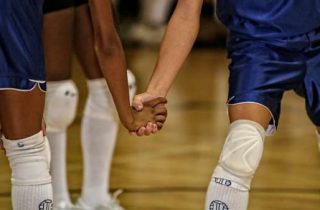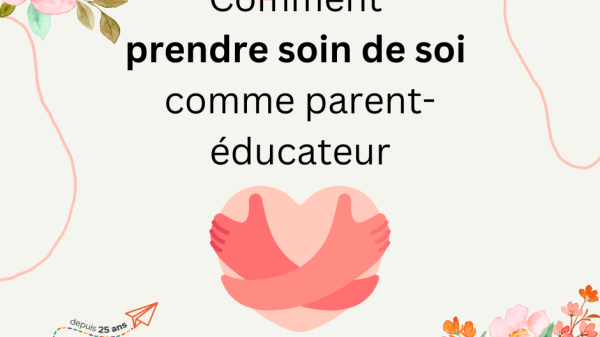
The benefits of homeschooling for young athletes

Practicing a sport offers many benefits for young people … and for parents! Exercise is good for the body and mind. It brings a balance in life, allows a better concentration, secretes the happiness hormone and much more! There are plenty of reasons to do sports, whether it’s simply to get our energetic little ones moving, to develop their motor skills or to make new friends through interest. To each their motive!
The majority of homeschooling families can enjoy more free time, which allows them to explore, express themselves, meet new people, develop perseverance, confidence and emotion management through sport, all in a fun way. Whether it’s an individual or team activity, whether it’s gymnastics, football, taekwondo, swimming, dance, fencing, ultimate Frisbee, mountain biking, speed skating, volleyball, karate, ringette, soccer, running, synchronized swimming, rowing, horseback riding, skateboarding, tri and duathlon, BMX or cross-country skiing (you name it!), there is a vast playground to explore, a fun trail for everyone!
From the 2,000 young people from AQED member families, some have their recreational sport in their blood. It’s to the point of wanting to adopt a lifestyle that leaves room for the daily practice of their sport. Their commitment is strong, and they have the opportunity to take up challenges! Being a homeschooler has many advantages when your youngster swims like a flying fish or splits the ice at full speed once on skates.
One of the benefits, even the most important, is to allow young athletes not to cut into his or her sleeping hours. Yes, homeschooling athletes can afford the luxury of sleeping in to recuperate from training or competition. This is essential to be top shape for the next training session!
Another benefit for homeschooled youth is to have access to a flexible schedule. This allows them to balance training and learning periods to meet their needs. Also, their learning pace is better respected compared to sports-study programs where, for example, they would be required to follow an accelerated pace while achieving and maintaining high academic performance to stay in the race. Moreover, despite the travelling required to get to competitions, homeschooling athletes can continue learning, as “school” can happen wherever they go!
As a bonus: despite all the studying and training, there is still room with homeschooling for the child to develop other passions. What if their ultimate and unique goal is the practice of their sport and they’re aiming for the Olympics? One of the most interesting points, depending on the sport, is that it’s easy to integrate daily practice into the schedule to allow your young athlete to improve his or her skills, just as you would do for math or a piano.
Despite your great home coaching program, your young athlete is still asking for more? Check with your local sports federation or join a club. You may be surprised to discover even more perks!
Testimonial
Sophie Dufresne’s family portrait is rather atypical. Sometimes at school, sometimes at “ship schooling”, sometimes world schooling on a trip or as an expatriate. Sometimes in collusion with the school where the children went to school, with fabulous exchanges!
“Since September, we’ve cut the ropes with the school system to provide more training, tournaments and overseas experience for our little athletes. Two of our children, Miko and Maëva, have the status of hopeful athletes with their federation,” explains Sophie.
She writes: “Among the training sessions with their four sports teams (local, regional and provincial), private coaching sessions twice a week, sport meets all over Quebec and the United States, including Maëva participating in a training camp in Cuba with members of the Canadian national team, it was much easier to manage all this while homeschooling. It allows us to offer them all these opportunities.”
Miko and Maëva did a year in a baseball sports-study program in the Laurentians. With training schedules outside school hours and another child in elementary school, this meant the family had to drive between 15 and 20 hours weekly. Besides school days, practices and homework, there were also practices and games on the weekends during fall and spring. The schedule was hectic, bringing too much fatigue, little recovery time and little performance.

Since last September, they have been in full-time homeschooling mode. Not only has the routine changed completely, but the sporting performances have improved, they achieved some personal growth and have developed their personalities. The children are more fulfilled, less irritable and less tired. Family relations have also benefited. And the money saved from the sport-study program allowed them to participate in tournaments in the United States and a development camp in Cuba with members of Team Canada, in addition to paying for private coaching to really develop the athlete in them. Sophie adds that this has even inspired part of Marva’s school program this year, and she dreams of having her own training center in the future. It takes them about three hours a day to cover the academic portion to cover. The rest of the time is for sports training and personal projects: courses in meteorology, Japanese, Chinese calligraphy, theatre, flying, music… In short, from sports, to academics and family life, it’s nothing but happiness!
The opinions expressed in this article are those of the authors and should not be interpreted as reflecting the position of AQED.
Traduit par Marie-Jo Demers



